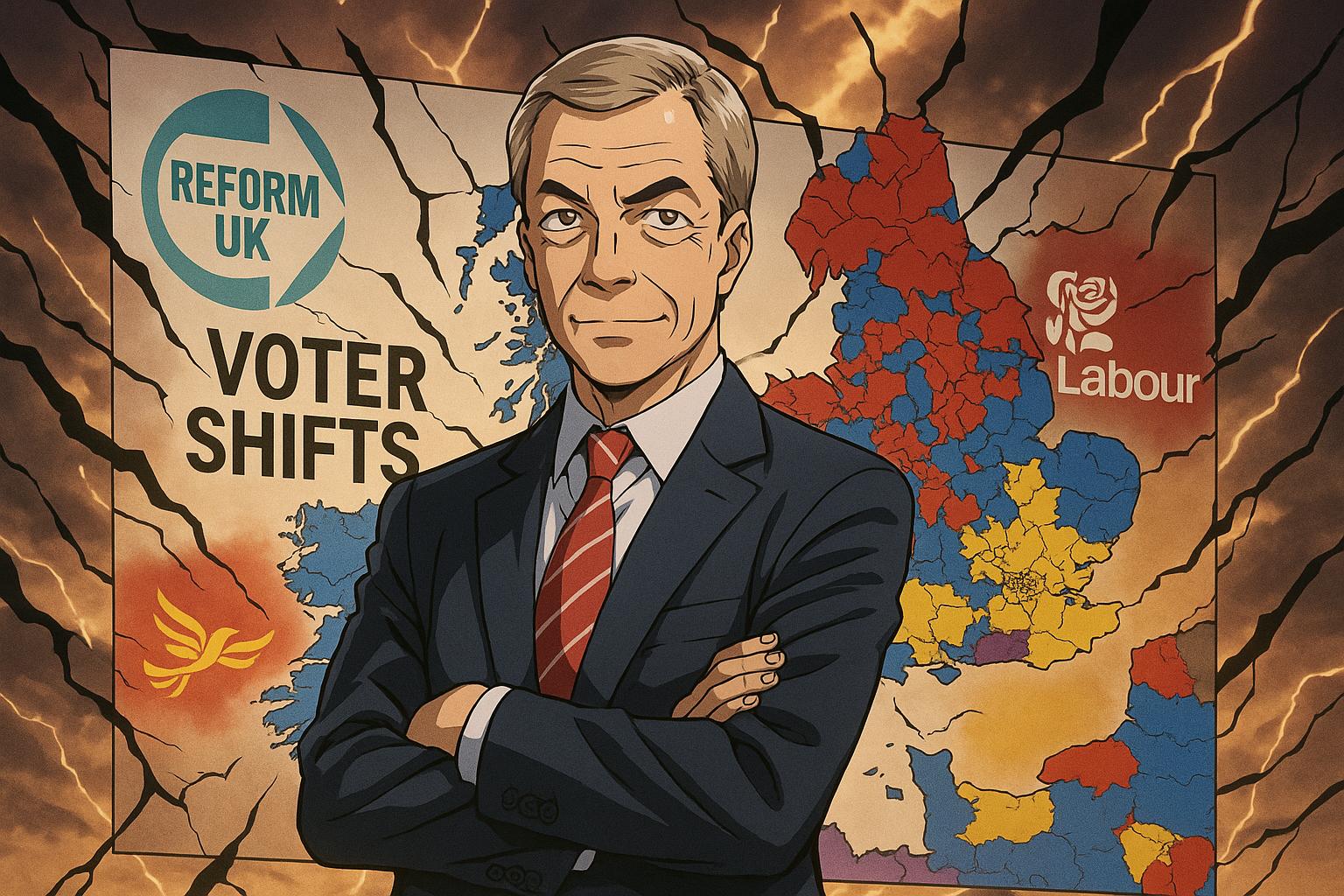Amidst growing political turbulence in the UK, Nigel Farage has emerged as a significant contender, with many describing the situation as a “political earthquake.” Recent polling suggests that a dramatic shift in voter sentiment could see Farage's party, Reform UK, receiving 30% of voter support in a hypothetical election—placing it ahead of Labour at 25%, the Conservatives at 18%, and the Liberal Democrats at 13%. This increasing backing is especially pronounced among voters aged 55 to 64, where support peaks at 41%, while it dips to just 19% among younger constituents aged 25 to 34.
The Conservatives are currently grappling with what some analysts term an “existential crisis,” exacerbated by internal conflicts and dwindling support. This turmoil has evidently opened the door for Reform UK to present itself as a viable alternative. The party's leader, Richard Tice, has been vocal in urging Conservative MPs to consider defecting, leveraging a rising wave of dissatisfaction with traditional political structures to galvanise support for Reform UK.
Farage's popularity has not only soared among potential voters but also in comparison to rival party leaders. A recent survey indicated that 36% of respondents expressed approval for Farage, surpassing the approval ratings for both Prime Minister Sir Keir Starmer and Conservative leader Kemi Badenoch. This growing favourability, however, is not without contention. While Farage currently enjoys a higher visibility in the public consciousness—reflected in polls from organisations like Ipsos—he also faces criticism, with a notable percentage of the populace holding unfavourable views towards him.
Despite this complex dynamic, Farage's historical favourability ratings illustrate a polarized political landscape. Recent Ipsos surveys show that as many as 28% of people have a favourable opinion of him, while 48% do not, indicating a net favourable score that remains negative at -20. Comparatively, Starmer's net rating has reached -29, further highlighting the emerging competition in British politics.
The situation remains fluid, as reflected in recent polls indicating fluctuations in voter intentions. For instance, a YouGov study from early March noted a resurgence for Labour, which is now neck-and-neck with Reform UK at 26% and 25% respectively. This represents a shift reflecting Starmer’s focus on issues like defence and the ongoing situation in Ukraine, which collectively aim to draw voters back to the traditional party fold.
As Reform UK navigates this electoral landscape, it faces intrinsic challenges posed by the UK's first-past-the-post voting system. Despite achieving a commendable 14.3% of the national vote share during the 2024 general election and securing five parliamentary seats, the tactical voting phenomena contributed to limiting its potential gains. Such hurdles underscore the complexities of British electoral dynamics, illuminating the difficulty parties like Reform UK face in translating popular support into parliamentary representation.
As the general election looms closer, the evolving support for reformist parties and the stratagems of traditional parties will shape the future of the UK political landscape. With Farage at the helm, a significant recalibration of party loyalty seems imminent, and the repercussions of this political realignment could profoundly impact governance and policy direction in the coming years.
Reference Map
- Paragraphs 1-2
- Paragraph 3
- Paragraphs 4-5
- Paragraph 6
- Paragraph 7
Source: Noah Wire Services
